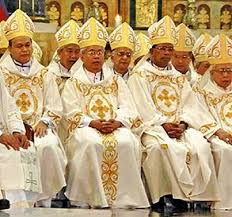 For most people, visiting a new church for the first time almost always entails great trepidation. We might just as soon meet potential in-laws, or our new neighbors the Addams family.
For most people, visiting a new church for the first time almost always entails great trepidation. We might just as soon meet potential in-laws, or our new neighbors the Addams family.
I always include a short prayer for our visitors in each of our worship services, asking God to bless them and to make their time with us full of peace and joy. The prayer, however, comes after a doing some things to help matters.
- We try to ensure parking is available and clearly marked.
- We provide good signage to help visitors find their way to the sanctuary and restrooms. Few things are more awkward than accidentally walking into the front of the sanctuary.
- Our greeters know who our members are, and who are visitors, and we train them to engage them accordingly.
- Our greeters alert key members to the presence of visitors.
- I try very hard to introduce myself to visitors prior to the service, if there is time. This short greeting always entails a blessing such as, "Thanks for being here. I pray that God will really fill you up with his joy and peace."
At an early juncture in the worship service, we make a point to welcome visitors. We don't actually point them out or have them stand. We simply speak generally to our visitors. We express appreciation for the fact that they could have chosen to be somewhere else and that visiting a new church can be difficult. If there is something special or different about today's worship service, such as Communion service, or a guest speaker, I will give visitors advance notice.
After all this, without making a fuss and without printing it into the bulletin's order of service, I say, "Shall we pray." Here's a random prayer blessing for visitors: "Father, we thank you for sending us each visitor here today. Please grant them peace and solace for choosing to come for worship. Whatever challenges they may be facing, we ask that you would grant them wisdom and grant them courage to do what they need to do. May they see that despite the fierceness of our present day conflicts, Jesus is Lord. Amen."
 Be aware that often there is some precipitating event or issue that has compelled the visitor to come to church. Sometimes visitors come to worship in a state of lament or disorientation about life, and God has used such circumstances to lead them to invest their time to visiting a church. No need to speculate on the specifics of why a visitor might be there, but congregations should be aware that below the surface issues may be simmering, and that the visit may mean opportunity for ministry.
Be aware that often there is some precipitating event or issue that has compelled the visitor to come to church. Sometimes visitors come to worship in a state of lament or disorientation about life, and God has used such circumstances to lead them to invest their time to visiting a church. No need to speculate on the specifics of why a visitor might be there, but congregations should be aware that below the surface issues may be simmering, and that the visit may mean opportunity for ministry.






